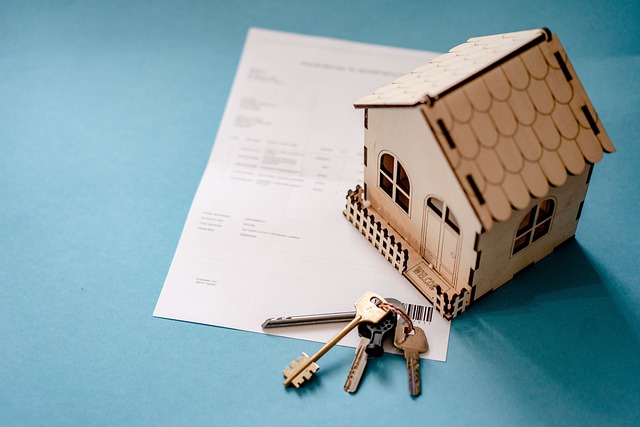This is among the most crucial concerns for homeowners who no longer plan to reside in their homes. There are many things to think about; the choice is not simple. We developed our Rent vs Sell Calculator for landlords to assist homeowners in assessing the long-run worth of their decision.
This tool helps you evaluate your financial results in both short-term and long-term situations. The best thing about it is that it’s completely free to use!
Your property’s value, the price you paid for it, your mortgage, your home’s appreciation rate, and other significant elements assist you to assess the financial advantages of renting versus selling your home. Our Rent vs Sell Calculator for landlords helps you compare these.
Table of Contents
ToggleUsing Our Rent vs Sell Calculator
Choosing whether to rent or sell your property can be challenging. Our Rent vs Sell Calculator considers a great number of factors to simplify this process. Here is a step-by-step tutorial on how to utilize our free tool and understand the findings.
Step 1: Collect Financial Records on Your Property
Start by compiling financial data on your property so you may use the calculator properly. This covers:
- Your property’s present worth
- The cost of your property when it was initially purchased
- Original and recent mortgage information including loan amount, current balance, interest rate, and monthly payment
Step 2: Determine the Current State of Your Property
Other expenses included in our analysis are costs for readying your property for tenants (make-ready costs) and any renovation needed right now.
Ready-Made Expenses
These include painting, minor repairs, appliance servicing, and HVAC, electrical, and plumbing checks. Known as rental turnover expenses, landlords are legally accountable for ensuring safety standards.
Repairing Costs
Check for safety and livability — smoke detectors, locks, leaks, infestations, plumbing, and appliances. Estimate any necessary repair or upgrade costs.
Step 3: Enter Your Information into the Calculator
Once you have all the knowledge, fill in:
- Monthly revenue possibilities and appreciation rate
- Mortgage info (accurate numbers give better results)
- Taxes, insurance, HOA fees, make-ready charges, renovation costs, capital improvements
The calculator then presents a thorough financial analysis of renting vs selling, with both short- and long-term forecasts.
Step 4: Evaluate Your Findings for Renting Versus Selling
After inputting your data, the calculator shows an understandable summary to compare net worth over time. A dynamic graph and slider let you explore different periods.
To view net cash flow, equity, and wealth projections, expand the navy box and modify the “years to hold” setting.
In Real Estate, What Is a Decent Return on Investment?
ROI—Return on Investment—measures profit and investment efficiency.
Though ROI varies, a general benchmark is 10% or more. In high-demand areas like San Diego, expectations may rise.
ROI Formula:
ROI = (Net Profit – Cost of Investment) ÷ Cost of Investment
This includes purchase price, closing fees, and repair costs. For rental property, factor in ongoing maintenance and management.
Selling Your Home: Pros and Cons
Pros
- Fast financial return
- Sell at market highs
- Simplified life
- Tax breaks on primary residence
Cons
- High transaction costs
- Market volatility
- Lost future appreciation
Advantages and Disadvantages of Renting Your House
Pros
- Continuous rental income
- Long-term appreciation
- Property tax deductions
- Flexibility to sell later
Cons
- Time-demanding landlord responsibilities
- Problematic tenants
- Rental income instability
- Ongoing repairs and inspections
Costs to Sell Your Property
Selling your home impacts your net earnings via:
- Closing costs (escrow, insurance)
- Holding expenses (taxes, insurance)
- Repair & staging fees
- Inspection/appraisal costs
- Relocation costs
In places like San Diego, costs can reach 5–6% of the sale price.
Expenses to Rent Your Home
Renting has ongoing expenses like:
- Make-ready maintenance
- Periodic inspections
- Legal paperwork and permits
- Property management costs
- Unexpected repairs
- Landlord insurance
- Vacancies and tenant screening
- Rental income taxes
Key Points to Consider
- Legal Compliance: Landlords must meet housing codes.
- Financial Planning: Include all ongoing costs.
- Lifestyle Impact: Being a landlord can be stressful.
- Tenant Relations: Maintain professionalism and clarity.
👉 Ready to decide? Use our Rent vs Sell Calculator
Frequently Asked Questions
How does the Rent vs Sell Calculator operate?
It uses your purchase price, current value, mortgage, appreciation, and expenses to compare rental vs sale outcomes.
What data do I need?
Mortgage, property valuation, taxes, insurance, make-ready and renovation costs.
Does it help determine if renting is smart?
Yes — especially for long-term ROI and equity tracking.
What costs are tied to selling?
Closing costs, inspections, staging, agent fees, and moving.
Are there tax benefits from selling?
Yes — you may get capital gains exemption if it was your primary home for 2 out of the past 5 years.
How do I price my rental?
Use local market trends, home condition, features, and expenses.
How do I prep a home for renting?
Ensure legal compliance, fix essentials, test all utilities.
Which is faster: rent or sell?
Renting is often quicker in competitive markets.
Should I hire a property manager?
Yes — especially if you’re short on time or knowledge. They handle everything from tenant screening to legal compliance.
